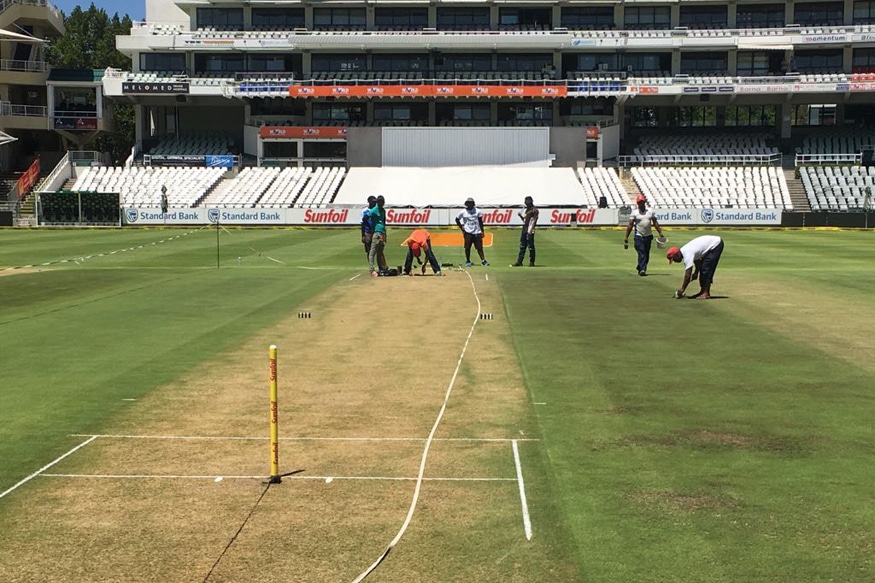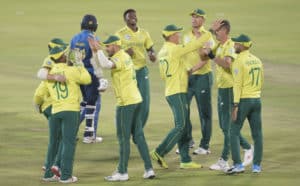Newlands curator Evan Flint has been given free rein to produce his best wicket, without pressure from the Proteas captain.
This is the beneficial response to the India series, in which the Proteas tried to have wickets ‘manufactured’ to their pace requirements. That led to a difficult surface at Newlands, an almost-sub-continental offering at Centurion and a dangerous wicket at the Wanderers, which was even rated ‘poor’ by the match referee.
Proteas captain Faf du Plessis and coach Ottis Gibson both acknowledged that their plan had backfired, and that they would stay away from the groundsmen and curators, ahead of this series.
Flint, in an interview with AAP, said the Indian series had been difficult ‘in a sense that we’d never had instructions quite that clear before.’
Now, he says, the players have let the ground staff do what they do best: produce the best possible wicket for Test cricket.
‘Our Test [against India] was kind of the least controversial, but to me, it still wasn’t a great Test. It finished in three days, nobody got a hundred. That’s not what you want.
‘They’ve definitely stepped back. There doesn’t seem to be as big a focus on getting it exactly how they want it.’
The third Test starts at Newlands on Thursday, with the series tied at 1-1, both the result of good cricket on reliable wickets. Australia’s Mitchell Starc and South Africa’s Kagiso Rabada have stood out with remarkable spells with ball in hand.
Both teams produced unplayable spells of reverse-swing in the opening two Tests, but now the impetus will be on Josh Hazlewood and Vernon Philander to bust the game open with the new ball.
‘It’ll definitely seam around early,’ said Flint. ‘This time of year it’s cooler in the mornings, so there’s more moisture,’ he said. ‘We might get a bit of reverse late, days four and five, but generally, this isn’t a reverse-swing kind of ground.’





